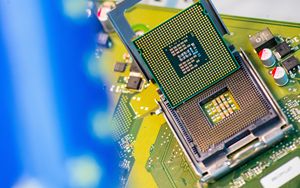(Finance) – The EU Council has approved the Chips Act, the regulation to strengthen the European semiconductor ecosystem. This is the last stage of the decision-making process. The chip regulation aims to create the conditions for developing a European industrial base in the chip sector semiconductorsattract investment, boost research and innovation and prepare Europe for possible future crises supplying of the chip. The program should mobilize 43 billion euros in investments public and individuals (including €3.3 billion from the EU budget), with the aim of doubling the EU’s share of the global semiconductor market from the current 10% to at least 20% by 2030.
‘With the chip regulation, Europe will lead the global semiconductor race. The results are already visible now: new production plants, new investments, new research projects. And in the long run, it will also contribute to the renaissance of our industry and the reduction of our foreign dependencies,’ he said. Héctor Gómez HernándezSpanish Minister of Industry, Trade and Tourism
Following the approval of the position of the Parliament European by the Council today, the legislative act is adopted. After signature by the President of the European Parliament and the President of the Council, the regulation will be published in Journal official of the European Union and will enter into force on the third day following its publication.
The Council also approved a edit of the Regulation establishing the Joint Undertakings under Horizon Europe, thus allowing for the establishment of the “Chip” Joint Undertaking, which builds on and renames the “Key Digital Technologies” Joint Undertaking. The change was approved today by the Council after consulting the Parliament. Both texts will be published in the Official Journal at the same time.
THE chip are small devices composed of semiconductors (materials capable of allowing or blocking the flow of electricity) and which can contain large quantities of information or perform operations mathematics And logics. They are essential for a variety of everyday products, from credit cards to cars to smartphones. With the development of artificial intelligence, 5G networks and the Internet of Things, the demand for chips and semiconductors and the market opportunities associated with them are expected to increase substantially.
At the moment Europe is excessively employee from foreign-made chips, which became even more evident during the crisis COVID-19. Industry and other strategic sectors such as healthcare, defense and energy have faced supply disruptions and shortages. The chip regulation aims to reduce the EU’s vulnerabilities and dependencies on foreign actors, while strengthening the basis industrial for chips, exploiting future trade opportunities and creating quality jobs, thus improving the EU’s security of supply, resilience and technological sovereignty in the chip sector.
